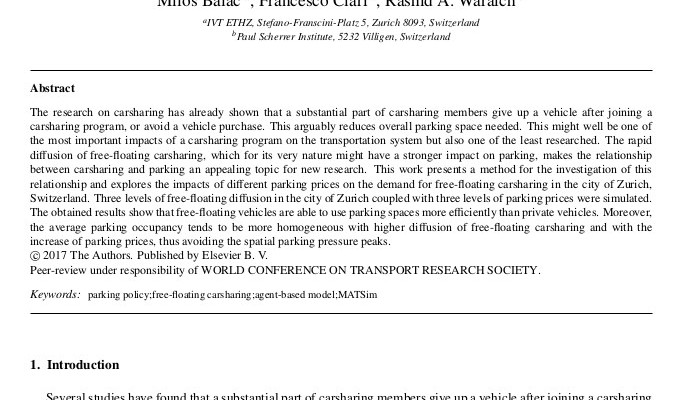Modeling the impact of parking price policy on free-floating carsharing: case study for Zurich, Switzerland / Milos Balac, Francesco Ciari, Rashid A. Waraich
Modeling the impact of parking price policy on free-floating carsharing: case study for Zurich, Switzerland / Milos Balac, Francesco Ciari, Rashid A. Waraich. – Transportation Research Procedia, 2017. – 13 p. – [formato PDF, 755 kB].
Conference Paper, World Conference on Transport Research (WCTR 2016), Shanghai, 10-15 July 2016.
The research on carsharing has already shown that a substantial part of carsharing members give up a vehicle after joining a carsharing program, or avoid a vehicle purchase. This arguably reduces overall parking space needed. This might well be one of the most important impacts of a carsharing program on the transportation system but also one of the least researched. The rapid diffusion of free-floating carsharing, which for its very nature might have a stronger impact on parking, makes the relationship between carsharing and parking an appealing topic for new research. This work presents a method for the investigation of this relationship and explores the impacts of different parking prices on the demand for free-floating carsharing in the city of Zurich, Switzerland. Three levels of free-floating diffusion in the city of Zurich coupled with three levels of parking prices were simulated. The obtained results show that free-floating vehicles are able to use parking spaces more efficiently than private vehicles. Moreover, the average parking occupancy tends to be more homogeneous with higher diffusion of free-floating carsharing and with the increase of parking prices, thus avoiding the spatial parking pressure peaks.
